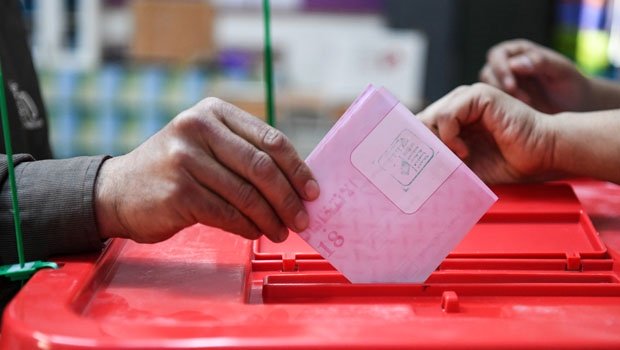

Tunisia’s new government was sworn in Thursday after winning a parliamentary confidence vote that broke four months of post-election deadlock.
Prime Minister Elyes Fakhfakh, thirty ministers and two secretaries of state were sworn-in during a ceremony at the presidential palace, over a month after Fakhfakh was designated premier by President Kais Saied.
A previous cabinet list put forward by Fakhfakh was rejected earlier in February by the Islamist-inspired party Ennahdha, which won the most seats in October’s legislative election, but fell far short of a majority in the 217-seat assembly.
But Fakhfakh’s revised lineup won the vote 129 to 77- with one out of 207 lawmakers present abstaining – after a debate that started on Wednesday and lasted more than 14 hours.
The new cabinet swore to “work loyally for the good of Tunisia, to respect the constitution and its legislation (and) to scrupulously guard its interests”.
The confidence vote follows a power struggle between the president and Ennahdha, with the party earlier threatening to pull out of Fakhfakh’s proposed administration.
Ennahdha gave its support to the new cabinet after being handed six portfolios. The leftist Democratic Current and the People’s Movement were also given ministries, alongside some 17 ostensibly non-partisan appointments.
Opening the confidence session on Wednesday, Fakhfakh identified his priorities as fighting criminality and “terrorism”, as well as boosting the economy.
Combating high prices, poverty and corruption would be key tasks, alongside creating jobs, he said.
Fakhfakh last week said the political negotiations had taken place “in a completely democratic manner”, despite difficulties.
A cabinet put forward by another premier-designate, Habib Jemli, was rejected by parliament in January.
Political analyst Slaheddine Jourchi said the task ahead for the new government “will be very difficult and complex”.
“Fakhfakh’s cabinet is very heterogenous, composed of members who hold different visions and ideologies,” he contended.
Fakhfakh is Tunisia’s eighth prime minister since the 2011 revolution that ousted president Zine El Abidine Ben Ali.
The new government will be tasked with relaunching discussions with the International Monetary Fund, which in 2016 approved a four-year, $3 billion loan for Tunisia in return for major reforms, some of which are disputed.
Due to delays, the country has only received about $1.6 billion so far, while the facility ends in April and the first repayments are due in November.
